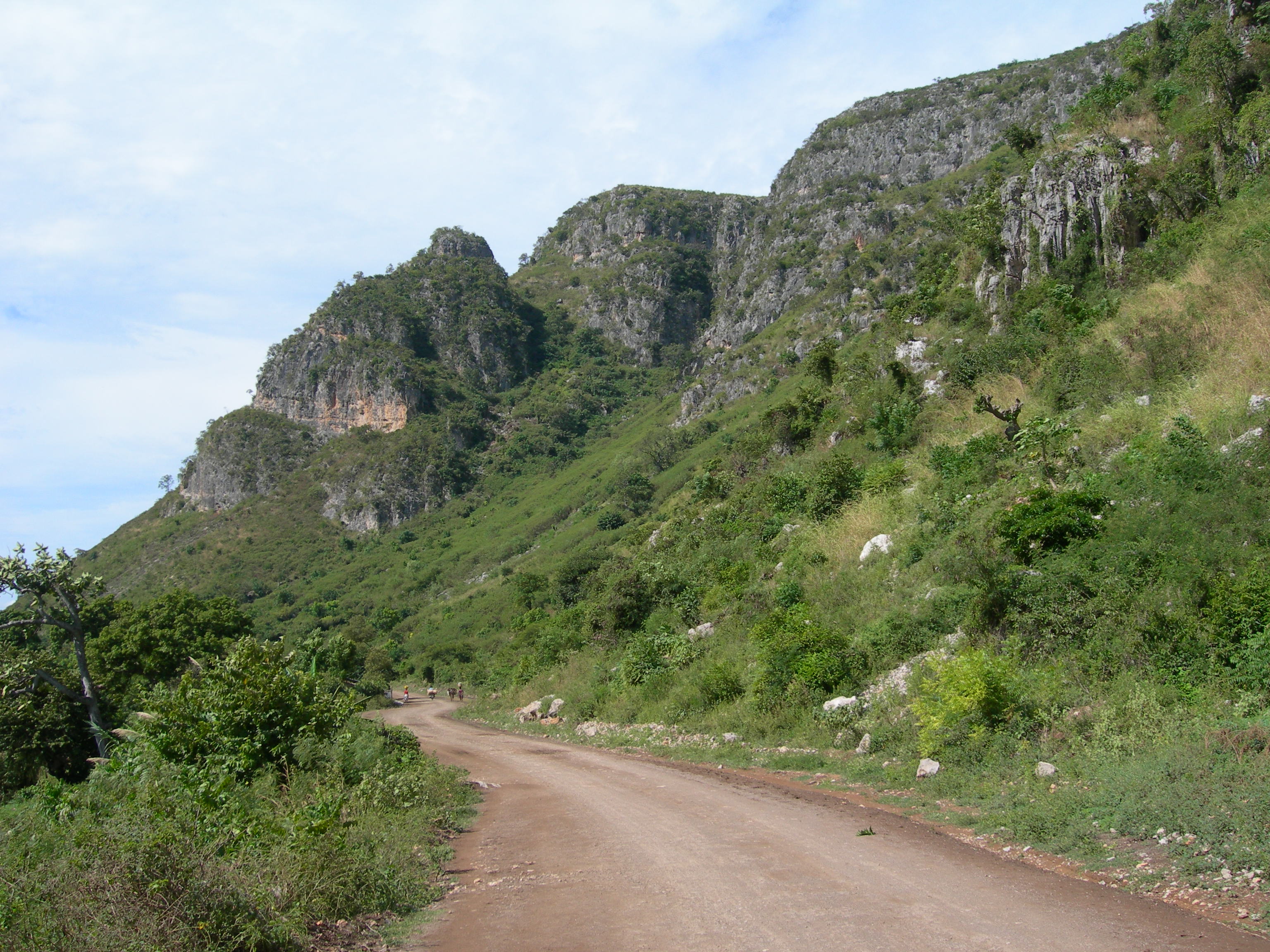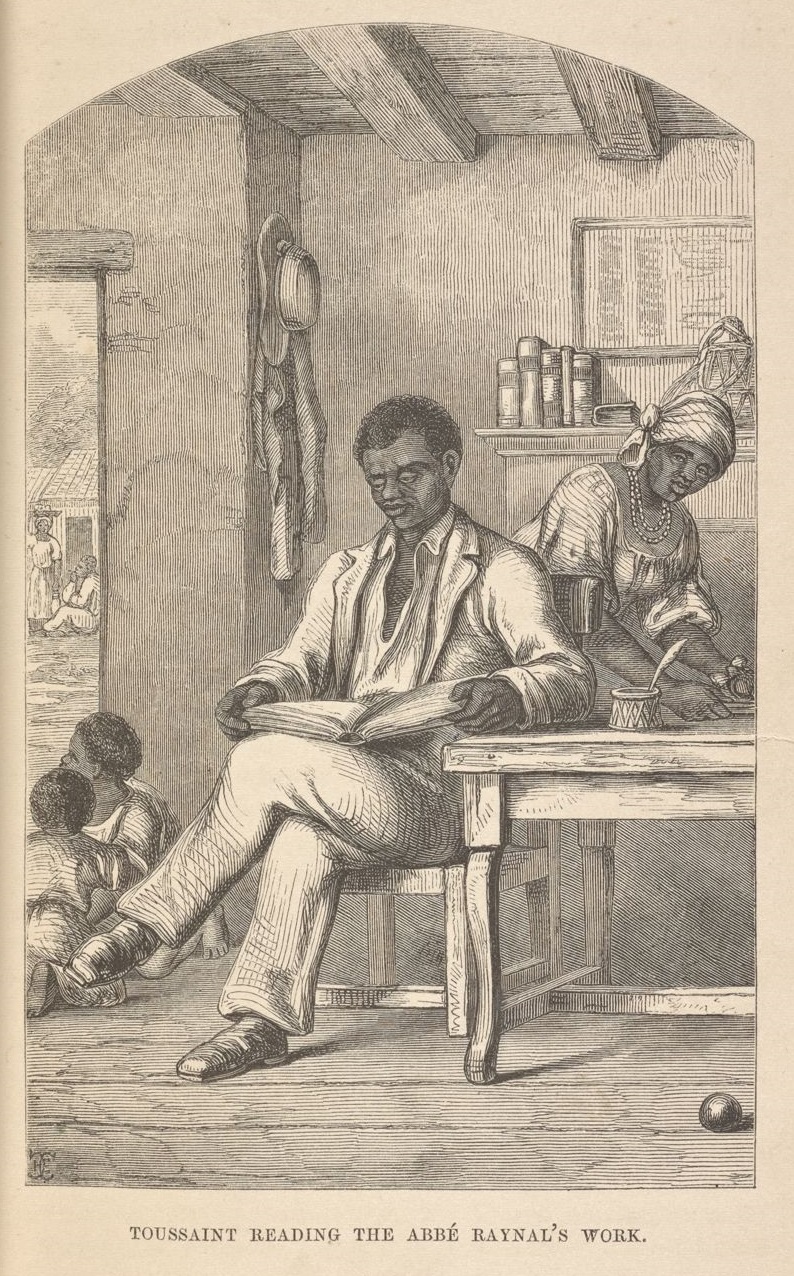|
Hammerton Killick
Hammerton Killick (April 18, 1856 – September 6, 1902) was an admiral in the Haitian Navy. He was killed in the 1902 Firmin rebellion when he refused to surrender his ship to the German warship . A naval base in Port-au-Prince is named after him. A 1943 Haitian postage stamp commemorated his role in the rebellion . Early life Killick was an "Anglo-Haitian mulatto." His father was of either Scottish or Irish descent. Military service Haiti in Killick's time was a poor country, and its navy was ill-equipped, with many of its officers serving under contract from other nations. At any given time, the number of ships in the Navy ranged between two and four. An observer in 1899 described obsolete, possibly un-seaworthy ships badly in need of paint being cannibalized for parts. Sailors in the navy often had to go without pay, and often had little, poor quality food. Moreover, the political situation in Haiti was not stable, with President Florvil Hyppolite facing revolts and rebel ... [...More Info...] [...Related Items...] OR: [Wikipedia] [Google] [Baidu] |
Haitian Navy
The Armed Forces of Haiti (french: Forces Armées d'Haïti—FAd'H), consisted of the Haitian Army, Haitian Navy (at times), the Haitian Air Force, Haitian Coast Guard, (ANI) and some police forces (Port-au-Prince Police). The Army was always the dominant service with the others serving primarily in a support role. The name of Haiti's military was changed from the Garde d'Haiti to the Forces Armées d'Haïti—FAd'H in 1958 during the rule of François Duvalier. After years of military interference in politics, including dozens of military coups, Haiti disbanded its military in 1995. On 17 November 2017, the armed forces were remobilized by President Jovenel Moise. The President suspended the previous executive orders by then President Jean-Bertrand Aristide who suspended and disbanded the armed forces on 6 December 1995. History Origins The origins of Haiti's military lie in the Haitian Revolution. A decade of warfare produced a military cadre from which Haiti's early ... [...More Info...] [...Related Items...] OR: [Wikipedia] [Google] [Baidu] |
Knot (unit)
The knot () is a unit of speed equal to one nautical mile per hour, exactly (approximately or ). The ISO standard symbol for the knot is kn. The same symbol is preferred by the Institute of Electrical and Electronics Engineers (IEEE), while kt is also common, especially in aviation, where it is the form recommended by the International Civil Aviation Organization (ICAO). The knot is a non- SI unit. The knot is used in meteorology, and in maritime and air navigation. A vessel travelling at 1 knot along a meridian travels approximately one minute of geographic latitude in one hour. Definitions ;1 international knot = :1 nautical mile per hour (by definition), : (exactly), : (approximately), : (approximately), : (approximately) : (approximately). The length of the internationally agreed nautical mile is . The US adopted the international definition in 1954, having previously used the US nautical mile (). The UK adopted the international nautical mile definition in 1970, ... [...More Info...] [...Related Items...] OR: [Wikipedia] [Google] [Baidu] |
Markomannia Incident
The ''Markomannia'' incident was a conflict between Haitian rebels and the German Empire in 1902, sparked by the boarding of the Hamburg steamer ''Markomannia'' by rebel naval forces. Incident The ''Markomannia'' (3335 BRT, 1890) was a steamer of the Hamburg America Line on the West Indies-Hamburg route, commanded by Captain Nansen. On 2 September 1902 she was stopped off the Haitian port of Cap-Haïtien by the Haitian gunboat '' Crête-à-Pierrot'' and searched for contraband. The ''Crête à Pierrot'' was under the control of Anténor Firmin's faction, which was rebelling against the provisional government of president Boissond Canal. The commander of the ''Pierrot'' was rebel admiral Hammerton Killick. Killick assumed that the ''Markommania'' was carrying weapons and supplies to government forces. She was thus searched by a boarding party and, despite protests from Nansen and the German consul in Cap-Haïtien, transferred the weapons and supplies on board to the ''Pierrot'' ... [...More Info...] [...Related Items...] OR: [Wikipedia] [Google] [Baidu] |
Artibonite (department)
Artibonite ( French) or Latibonit (Haitian Creole) is one of the ten departments of Haiti located in central Haiti. With an area of 4,887 km2 it is Haiti's largest department. As of 2015, its estimated population was 1,727,524. The region is the country's main rice-growing area. The main cities are Gonaïves (the capital) and Saint-Marc. In February 2004 an insurgency tried unsuccessfully to declare Artibonite's independence. Etymology The name L'Artibonite is derived from the Artibonite River the longest river on the Quisqueya island. L'Artibonite is derived from the Taino worJa'tibonicu'meaning The Great High Place of the Sacred Waters. Under Toussaint's administration of the island, the department was known as Toussaint's Department. History Taino Period During that period the actual department seats between the three casicas of Marien, Maguana, and Xaragua. The border between those chiefdoms is assumed to be the Artibonite River. Although the department's capital ... [...More Info...] [...Related Items...] OR: [Wikipedia] [Google] [Baidu] |
Commission (document)
A commission is a formal document issued to appoint a named person to high office or as a commissioned officer in a territory's armed forces. A commission constitutes documentary authority that the person named is vested with the powers of that office and is empowered to execute official acts. A commission often takes the form of letters patent. Commissions are typically issued in the name of or signed by the head of state. In Commonwealth realms, the documentation is referred to a King's Commission or Queen's Commission (depending on the gender of the reigning monarch). However, in Commonwealth realms other than the United Kingdom, they may be signed by the governor-general, the representative of the monarch of that realm. Terminology Because the word "commission" can also refer generally to an individual's duty, the more specific terms commissioning parchment or commissioning scroll are often used to specify the commissioning document. However the document is not usually i ... [...More Info...] [...Related Items...] OR: [Wikipedia] [Google] [Baidu] |
Jean Jumeau
Jean may refer to: People * Jean (female given name) * Jean (male given name) * Jean (surname) Fictional characters * Jean Grey, a Marvel Comics character * Jean Valjean, fictional character in novel ''Les Misérables'' and its adaptations * Jean Pierre Polnareff, a fictional character from ''JoJo's Bizarre Adventure'' Places * Jean, Nevada, USA; a town * Jean, Oregon, USA Entertainment * Jean (dog), a female collie in silent films * "Jean" (song) (1969), by Rod McKuen, also recorded by Oliver * ''Jean Seberg'' (musical), a 1983 musical by Marvin Hamlisch Other uses * JEAN (programming language) * USS ''Jean'' (ID-1308), American cargo ship c. 1918 * Sternwheeler Jean, a 1938 paddleboat of the Willamette River See also * Jehan * * Gene (other) * Jeanne (other) * Jehanne (other) * Jeans (other) Jeans are denim trousers. Jeans may also refer to: Astronomy * Jeans (lunar crater) * Jeans (Martian crater) * 2763 Jeans, an asteroi ... [...More Info...] [...Related Items...] OR: [Wikipedia] [Google] [Baidu] |
Toussaint Louverture (ship)
François-Dominique Toussaint Louverture (, ) also known as Toussaint L'Ouverture or Toussaint Bréda; 20 May 1743 – 7 April 1803) was a Haitian general and the most prominent leader of the Haitian Revolution. During his life, Louverture first fought against the French, then for them, and then finally against France again for the cause of Haitian independence. As a revolutionary leader, Louverture displayed military and political acumen that helped transform the fledgling slave rebellion into a revolutionary movement. Louverture is now known as the "Father of Haiti". Louverture was born enslaved on the French colony of Saint-Domingue, now known as Haiti. He was a devout Catholic who became a freeman before the revolution and, once freed, identified as a Frenchman for the greater part of his life. During his time as a freeman he attempted to climb the highly stratified social ladder on the island, combatting racism whilst gaining and losing much wealth while working as a ... [...More Info...] [...Related Items...] OR: [Wikipedia] [Google] [Baidu] |
Cap-Haïtien
Cap-Haïtien (; ht, Kap Ayisyen; "Haitian Cape"), typically spelled Cape Haitien in English and often locally referred to as or , is a commune of about 190,000 people on the north coast of Haiti and capital of the department of Nord. Previously named ''Cap‑Français'' ( ht, Kap-Fransè; initially ''Cap-François'' ht, Kap-Franswa) and ''Cap‑Henri'' ( ht, Kap-Enri) during the rule of Henri I, it was historically nicknamed the ''Paris of the Antilles'', because of its wealth and sophistication, expressed through its architecture and artistic life. It was an important city during the colonial period, serving as the capital of the French Colony of Saint-Domingue from the city's formal foundation in 1711 until 1770 when the capital was moved to Port-au-Prince. After the Haitian Revolution, it became the capital of the Kingdom of Haiti under King Henri I until 1820. Cap-Haïtien's long history of independent thought was formed in part by its relative distance from Port-au-Pri ... [...More Info...] [...Related Items...] OR: [Wikipedia] [Google] [Baidu] |
Pierre Nord Alexis
Pierre Nord Alexis (2 August 1820 – 1 May 1910) was President of Haiti from 17 December 1902 to 2 December 1908. Early life He was the son of a high-ranking official in the regime of Henri Christophe, and Blézine Georges, Christophe's illegitimate daughter. Alexis joined the army in the 1830s, serving President Jean-Louis Pierrot, his father-in-law, as an aide-de-camp. Career In the ensuing years, he had a tumultuous career: he was exiled in 1874 but was allowed to return to Haiti a few years later by President Pierre Théoma Boisrond-Canal. During the presidency of Lysius Salomon, he was a vocal leader of the opposition, enduring several jail sentences before Salomon was finally ousted in a revolt. The new president, Florvil Hyppolite, gave him an important military position in the north, but when President Tirésias Simon Sam resigned, he joined Anténor Firmin in a march on Port-au-Prince in an effort to seize control of the government. The new president, however, wa ... [...More Info...] [...Related Items...] OR: [Wikipedia] [Google] [Baidu] |
Anténor Firmin
Joseph Auguste Anténor Firmin (18 October 1850 – 19 September 1911), better known as Anténor Firmin, was a Haitian barrister and philosopher, pioneering anthropologist, journalist, and politician. Firmin is best known for his book ''De l'égalité des races humaines'' ( en, "On the Equality of Human Races"), which was published in 1885 as a rebuttal to French writer Count Arthur de Gobineau's work '' Essai sur l'inégalité des races humaines'' ( en, "Essay on the Inequality of Human Races"). Gobineau's book asserted the superiority of the Aryan race and the inferiority of Blacks and other people of color. Firmin's book argued the opposite, that "all men are endowed with the same qualities and the same faults, without distinction of color or anatomical form. The races are equal". He was marginalized at the time for his beliefs that all human races were equal. Biography Joseph Auguste Anténor Firmin was born as the third generation of a post-independent Haiti in a working-c ... [...More Info...] [...Related Items...] OR: [Wikipedia] [Google] [Baidu] |
Direct Elections
Direct election is a system of choosing political officeholders in which the voters directly cast ballots for the persons or political party that they desire to see elected. The method by which the winner or winners of a direct election are chosen depends upon the electoral system used. The most commonly used systems are the plurality system and the two-round system for single-winner elections, such as a presidential election, and party-list proportional representation for the election of a legislature. By contrast, in an indirect election, the voters elect a body which in turn elects the officeholder in question. In a double direct election, the elected representative serves on two councils, typically a lower-tier municipality and an upper-tier regional district or municipality. Examples Legislatures * The European Parliament has been directly elected every five years since 1979. Member states determine how to elect their representatives, but, among other requirements, ... [...More Info...] [...Related Items...] OR: [Wikipedia] [Google] [Baidu] |
Haitian Parliament
The National Assembly (french: Assemblée nationale, ht, Asanble Nasyonal) is the bicameral legislature of the Republic of Haiti, consisting of the upper house as the Senate (Sénat) and the lower house as the Chamber of Deputies (Chambre des Députés). Both assemblies conduct legislative sessions at the Haitian capital of Port-au-Prince. History The National Assembly was preceded by the Council of State, a legislative council appointed by the head of state, mostly from among generals. The Council of State was first formed by Jean-Jacques Dessalines under his 1804 imperial constitution. Following his 1806 assassination, his northern general and the new Chief of the Provisional Government Henri Christophe called a Constituent Assembly to meet in Port-au-Prince in November. However, a power struggle ensued between supporters of Christophe and his fellow general Alexandre Petion. Christophe had sought to ensure a majority of parishes from his power base in the Northern and Ar ... [...More Info...] [...Related Items...] OR: [Wikipedia] [Google] [Baidu] |





